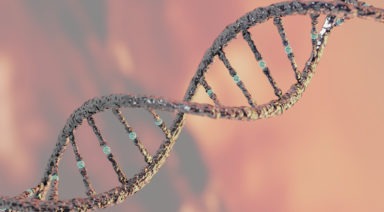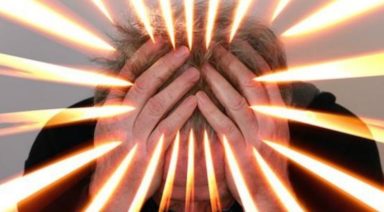Study Finds Anti-Inflammatory Meds Are Causing Chronic Pain

A groundbreaking new study suggests that commonly used anti-inflammatory drugs and steroids may cause pain to become chronic. Could this lead to a dramatic paradigm shift in how pain is managed and prevented?
For the vast majority of people in acute pain, taking an over-the-counter anti-inflammatory, such as ibuprofen is the usual course of action. Inflammation has, for decades, been seen as a cause of pain and its control, the goal of patients and doctors. A new study suggests, however, that inflammation may actually be necessary to prevent pain from becoming chronic.
Given today’s overwhelming prevalence of chronic pain — pain that persists for more than three months — scientists have lately been turning their focus to studying the process by which acute pain transitions into more lasting and debilitating pain.
Researchers at McGill University recently completed a study in which they observed this process, using several methods. First, they looked at patients with lower back and facial pain.
Upon analysis of their immune cell samples, the scientists were surprised to find that those whose pain resolved showed an intense spike in the activity of inflammatory genes during the acute pain stages, which then rapidly diminished within three months.
Researchers then conducted an animal study in which they treated mice with various pain medications. They found that those who received steroids or non-steroidal anti-inflammatories, eventually developed chronic pain, while those treated with other kinds of pain drugs, such as lidocaine, did not.
Finally, the team examined data from a large group of people and found that those who took anti-inflammatories had almost double the chance of developing chronic pain than those who took no drugs or other drugs that didn’t suppress inflammation.
The findings strongly suggest that our immune system’s natural inflammatory response may help the body resolve pain while taking drugs that suppress this natural process does just the opposite.
An important note is that researchers believe that most of the harm comes from the long-term use of these drugs. While some experts urge caution in this interpretation and are calling for further clinical study, many are heralding the findings as groundbreaking.
Dr. Thomas Buchheit of Duke University told the New York Times, “This is absolutely a paradigm shift, there is this unspoken rule: if it hurts, take an anti-inflammatory, and if it still hurts, put a steroid on it.” But, he said, “…we have to think of healing and not suppression of inflammation.”
Dr. Masimo Allegri, lead author of the study told the American Association for the Advancement of Science, “The biggest clinical implication is a complete reconsideration of both prevention strategies and treatments.”
While further research is forthcoming, this study does seem to provide convincing evidence of the body’s innate intelligence for healing, and the importance of allowing it to do so without interference.
Biorhythm Research is Creating New Paradigm in Women's Health

Following decades of being excluded from clinical studies, women today are suffering dire consequences. Can new research finally reverse the misunderstandings and help women harness the power of their unique biology?
Kayla Osterhoff is a neuropsychophysiologist studying the mind-body connection, with a focus on women’s health.
“Well most people are probably not aware of this, but women actually represent the largest gap in health science research that exists today,” Osterhoff said. “This is perpetuated by a problem that actually manifested back in 1977 when the FDA formally banned all women of child-bearing potential from all clinical research. That ban remained in effect until 1993, and to this day, the damage has been done and women are still left out of the clinical research.”
“The reason why women are left out of the clinical research is that women are biologically complex, meaning that they are biologically, biochemically, and physiologically shifting constantly because of our female hormone cycle that drives our physiology. The other reason is that women are risky research subjects, meaning that they can become pregnant at any time during the study. So, while it is understandable from an ethical standpoint, it cannot remain in effect because women are really being disempowered by this gap,” she said.
The repercussions of this scientific gap have been profound and were highlighted in a recent study.




































